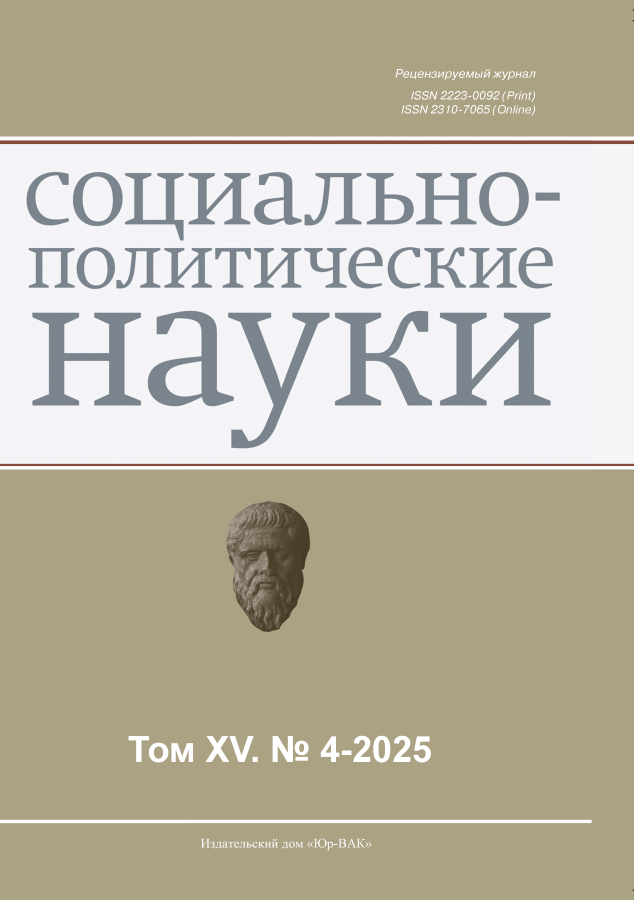Mandatory conditions of the employment contract as a mechanism for harmonizing the interests of employees and employers (question theory)
- Authors: Buyanova M.O.1
-
Affiliations:
- Financial University under the Government of the Russian Federation
- Issue: Vol 15, No 4 (2025)
- Pages: 206-211
- Section: New issues in law
- URL: https://journal-vniispk.ru/2223-0092/article/view/348449
- DOI: https://doi.org/10.33693/2223-0092-2025-15-4-206-211
- EDN: https://elibrary.ru/VQBVWF
- ID: 348449
Cite item
Abstract
The theory of the issue of establishing mandatory conditions of employment contract is investigated. It is proved that the balance of interests of the parties to the employment contract is achieved not only through the legislative consolidation of mandatory conditions, but also through the creation of flexible mechanisms for their adaptation to the dynamics of real labor relations. Formal compliance with mandatory requirements, not supported by their synchronization with actual working conditions, gives rise to “legal dualism,” in which the contract loses the role of a living regulatory tool, turning into fiction mandatory conditions, but also through the creation of flexible mechanisms for their adaptation to the dynamics of real labor relations. Formal compliance with mandatory requirements, not supported by their synchronization with actual working conditions, gives rise to “legal dualism,” in which the contract loses the role of a living instrument of regulation, turning into fiction. The proposal is substantiated that the system of mandatory conditions of the employment contract should be supplemented by a legislated institution of dynamic compliance, obliging the parties to regularly adjust the contractual provisions in accordance with changing actual circumstances of work. This approach will make it possible to overcome formalism, prevent a hidden deterioration in the position of the employee and ensure a true balance of interests – not as static equality, but as a process of continuous coordination within the legal framework. The author concludes that the legal regulation of labor relations in the Russian Federation, based on the norms of the Labor Code of the Russian Federation, is a complex mechanism aimed at harmonizing the interests of the employee and the employer. The state, establishing imperative requirements for the content of the employment contract, actually determines the “rules of the game” beyond which the parties cannot build their relationships.
Full Text
##article.viewOnOriginalSite##About the authors
Marina O. Buyanova
Financial University under the Government of the Russian Federation
Author for correspondence.
Email: mobuianova@mail.ru
ORCID iD: 0000-0003-4911-0406
SPIN-code: 6233-9777
Dr. Sci. (Law), Professor
Russian Federation, MoscowReferences
- Abdurakhmanova Z.Z. Theoretical aspects of the content of the terms of the employment contract and their changes. Scientist of the XXI Century. 2022. No. 5-1 (86). Pp. 104–106. (In Rus.)
- Batusova E.S. Employment test: legal experience of foreign countries. Law. HSE Journal. 2021. No. 1. Pp. 244–269. (In Rus.)
- Belozerova K.A. Bringing the content of the employment contract in line with the actual circumstances. Bulletin of the Omsk GU. Series: Law. 2024. No. 3. Pp. 70–79. (In Rus.)
- Vykhodilova M.S., Demidov N.V. Institute for Testing an Employee at Employment. Ural Journal of Legal Research. 2024. No. 1 (26). Pp. 39–53. (In Rus.)
- Zhugin A.V. Labor function of the employee: Content, clarification, change. Issues of Russian Justice. 2021. No. 15. Pp. 382–397. (In Rus.)
- Zavgorodniy A.V. Instability of the labor legal relationship of teachers in educational organizations: The main reasons. Yearbook of Labor Law. 2024. No. 14. Pp. 63–76. (In Rus.)
- Ioffe O.S. Binding Law. Moscow: Legal Literature, 1975. 945 c.
- Kulakov V.V., Voronov I.Yu. Balance of interests of the employee and the employer. Bulletin of Tomsk University. 2022. No. 3475. Pp. 215–221. (In Rus.)
- Kurenkov I.A. On the issue of abuse of law when changing an employment contract. Labor Law in Russia and Abroad. 2025. No. 1. Pp. 35–38. (In Rus.)
- Lebedev M.A., Prokudin R.O., De E.P. Problems of determining the terms of an employment contract. Law and the Right. 2022. No. 5. Pp. 226–229. (In Rus.)
- Ostapenko A.V. Abuse of labor rights of pregnant women as a factor affecting the safety of economic activity. Law and Policy. 2021. No. 1. Pp. 34–48. (In Rus.)
- Protsevsky V.A., Ochkurenko S.V., Gorlov E.V. Employment contract as a source of individual contractual regulation. Scientific Notes of the Crimean Federal University named after V.I. Vernadsky. Legal Sciences. 2023. No. 3. Pp. 395–406. (In Rus.)
Supplementary files








